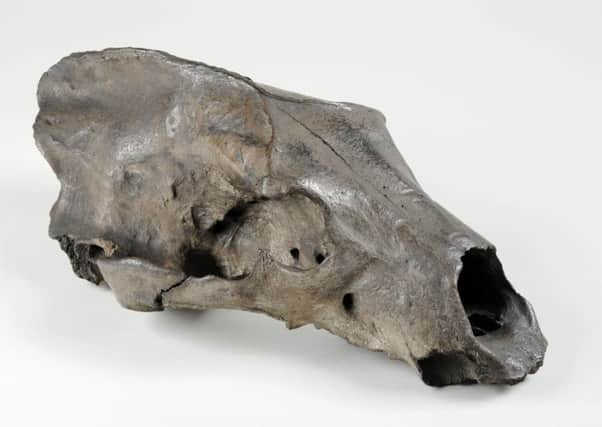Leeds nostalgia: Bear skull helped unlock evolutionary puzzle


The skull, which currently resides at the Leeds Discovery Centre, comes from an extinct species of bear known at Urus Planafrons and was dug out of a bog in Co. Westmeath in the 1860s.
Estimates of just how old the skull may be range from 11,500 years to a staggering 600,000, but it has been here in Leeds since 1864, when it was gifted to the Leeds Philosophical and Literary Society.
Advertisement
Hide AdAdvertisement
Hide AdThen curator Henry Denny, a noted naturalist and expert in insects who corresponded with the great Charles Darwin, used the skull in his studies in Leeds.
Denny sent photos of the mysterious find to professor Richard Owen, then of the British Museum and who would later be the first director of the Natural History Museum.
Owen advised him that the specimen probably came from an entirely new species of bear.
Today, skulls like the one classified by Denny are used to study hundreds of thousands of years of bear evolution, and have helped scientists to discover the origins of all bears as well as giving them new insights into climate change by looking at how the animals evolved through the Ice Age.
Advertisement
Hide AdAdvertisement
Hide AdCouncillor Brian Selby, Leeds City Council’s lead member for museums and galleries, said: “Some of the seemingly unremarkable specimens in our collection can sometimes have the most intriguing stories to tell.
“Humble objects like this skull can make an incredible and lasting contribution to scientific discovery that have a major impact on the way we understand history and the natural world, both in the past and today.”
The Leeds Discovery Centre is a state-of-the-art museum storage facility which preserves and protects Leeds Museums and Galleries collections.
It hosts visits and behind-the-scenes tours by appointment, which can be booked by contacting the centre on 0113 378 2100 or by email at [email protected]
For more details, visit: http://www.leeds.gov.uk/museumsandgalleries/Pages/discoverycentre.aspx